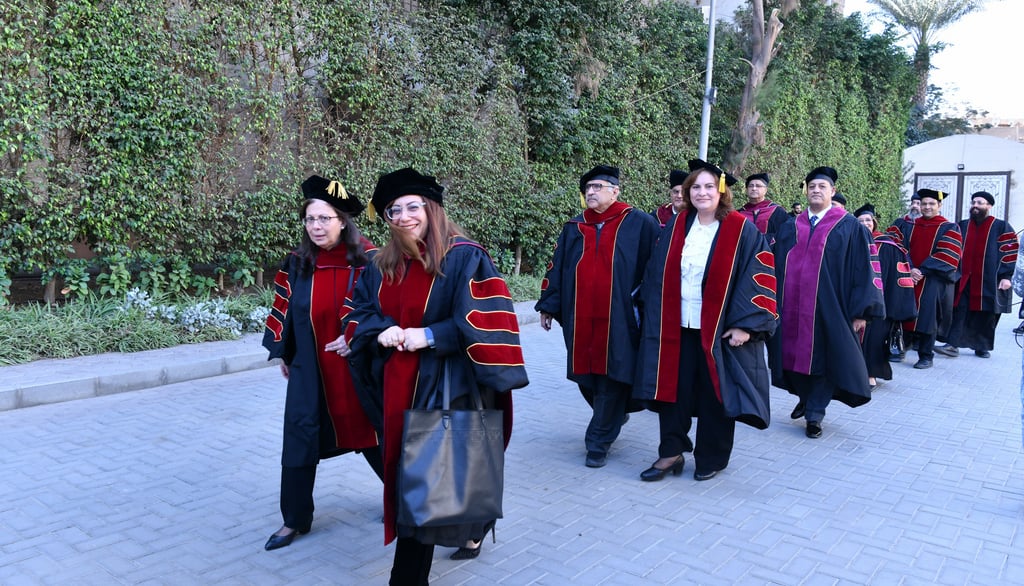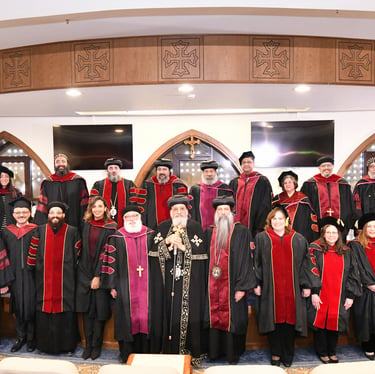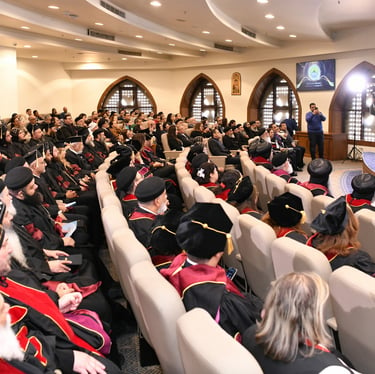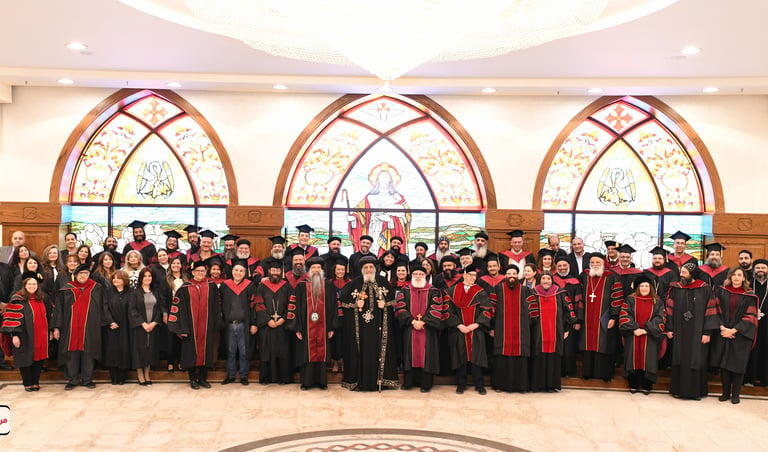





Welcome to Holy Sophia
At Holy Sophia University, we aim to bring to our students a transformative and accessible education rooted in the ancient wisdom of our Patristic heritage. Through the Grace of our Lord Jesus Christ–the Holy Sophia–our goal is to enable the embodiment of Coptic Orthodoxy for healthy dialogue within the complexities of contemporary culture.
We have several unique opportunities at Holy Sophia, all of which are suited to your busy lifestyle. A student can choose from:
211 online courses in English, Arabic & German.
Several online certificate programs.
Online Master's degrees in English, Arabic and German
Online PhD degrees in English and Arabic
65+ expert faculty members.
We are excited to have you become part of the Holy Sophia family!
Educational Services Overview

Courses Offered

Diverse Learning Opportunities

At Holy Sophia University, we offer a comprehensive range of courses and degree programs designed to enrich your educational journey in a Christian environment.
Our programs encompass various academic disciplines, fostering personal growth, spiritual development, and academic excellence.
Explore our diverse range of degree programs that cater to different interests and career paths, offering a unique blend of education grounded in Christian values and academic rigor.
Community and Support
Our Projects
Explore our diverse educational research projects that embody our commitment to providing quality Christian education. Each initiative is designed to enhance learning experiences and foster spiritual growth among our students.




Current Initiatives
At Holy Sophia University, we are dedicated to developing innovative research projects that support our academic programs. These initiatives include online learning enhancements, and collaborative research opportunities, all aimed at enriching the educational journey of our students.




Spiritual Growth Through Education
At Holy Sophia University, we offer diverse courses and degrees that integrate Christian values, fostering academic excellence and spiritual growth in our students.


Spiritual Growth
Explore New Opportunities
Student Feedback
John H.


Mary S.
Holy Sophia University has truly transformed my educational journey. The faculty is incredibly supportive and knowledgeable, always willing to help students succeed. I appreciate the community atmosphere that encourages collaboration and personal growth. The flexibility of online classes has allowed me to balance my studies with other commitments. I highly recommend Holy Sophia University to anyone seeking a meaningful Christian education based upon early church fathers.
Earning my Master’s degree from Holy Sophia has been a truly transformative journey. Rooted in the wisdom of the early Church Fathers, the program offered me not just academic knowledge, but spiritual nourishment and clarity. Each course was deeply grounded in Patristic theology, providing a rich teaching from the likes of St. Athanasius, St. Cyril of Alexandria, and many others whose voices continue to echo powerfully in the life of the Church today.
Enrollment Process
Step One
1
2
Step Two
3
Step Three
Begin your journey by exploring our diverse programs and courses tailored to your educational needs and spiritual growth at Holy Sophia University.
Complete the application form online, providing necessary documents and information to ensure a smooth admission process into our esteemed institution.
Once accepted, you will receive guidance on course and blackboard registration to help you start your academic journey successfully.
Our Dedicated Team




Our Mentors
Our Faculty Members


Our Staff Members


Our Support Team
Our team at Holy Sophia University is committed to providing quality education rooted in Christian values, guiding students through their academic journeys with support and expertise in various disciplines.
Oversee academic programs
Teach
Guide
Support
Contact Us
For inquiries about our courses, programs, or faculty, please reach out via the contact form or call us. We look forward to assisting you on your educational journey.





